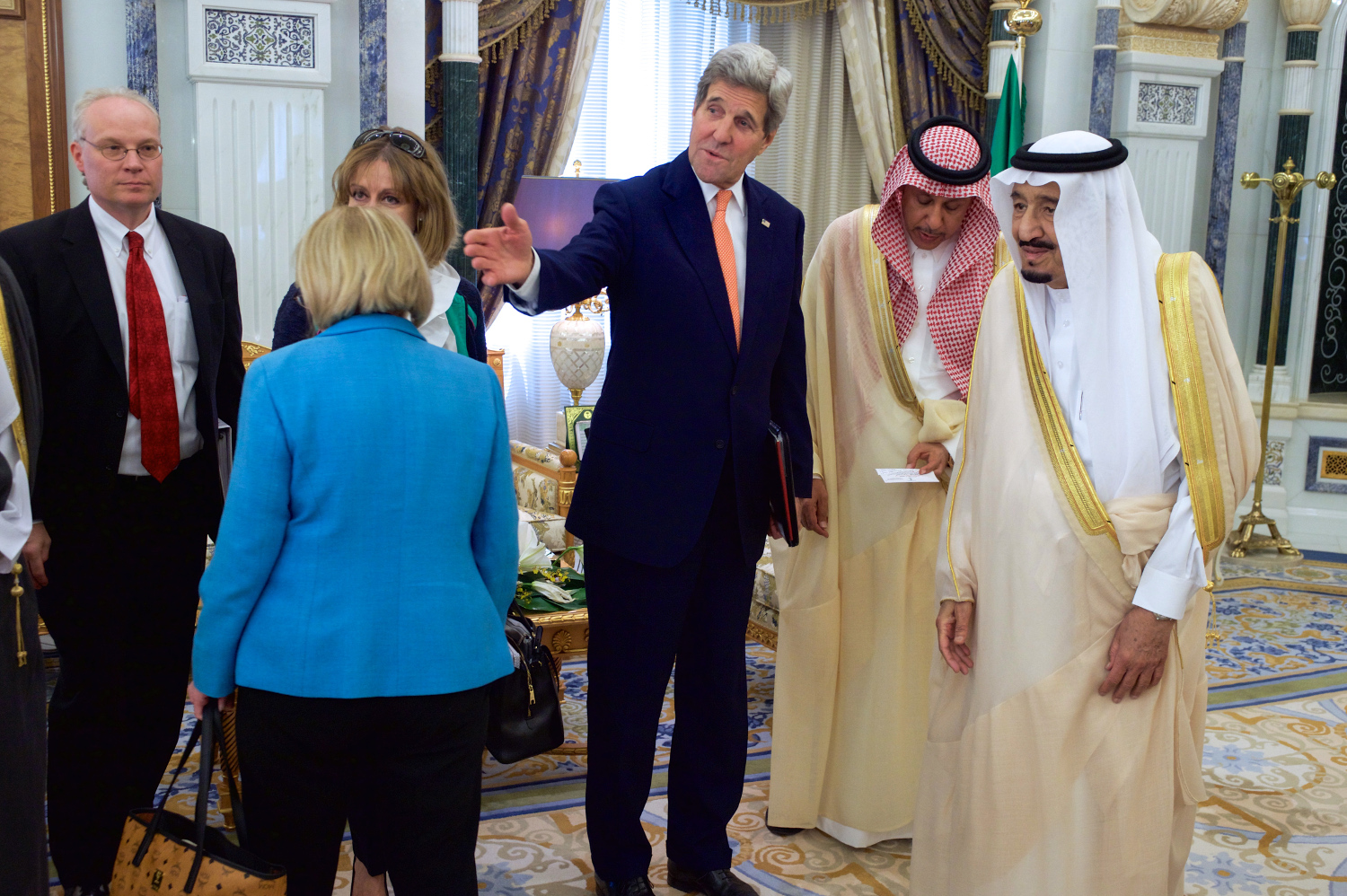by Diana Ohlbaum
If there were a “basket of deplorables” for foreign countries, Saudi Arabia would surely be in it. The Saudi government holds one of the world’s worst records on religious freedom and women’s rights, and harbors one of the most repressive media environments. Saudi forces have committed “gross and systemic” violations of international humanitarian law in Yemen, where their indiscriminate bombings of hospitals and civilian populations may constitute war crimes. For years the House of Saud has underwritten the spread of Wahhabist madrassas that preach religious intolerance and foster violent extremism. And as the newly declassified 28 pages from a joint congressional intelligence report suggest, officials of the Saudi government may have provided financial and logistical support to the 9/11 hijackers.
Small wonder, then, that senators and representatives rushed to support a bill, known as the Justice Against Sponsors of Terrorism Act, or JASTA, to allow the families of the 9/11 victims to sue Saudi Arabia in U.S. courts. One of its sponsors called the legislation, which passed both houses over the administration’s objections, a “no-brainer.” But perhaps a more apt description would be “gutless,” because the measure is a shameful dereliction of congressional duty.
As a body, Congress has neither condemned Saudi human rights violations nor determined Saudi Arabia to be a state sponsor of terrorism. Although congressional patience with the Saudis appears to be wearing thin, the 114th Congress has not enacted a single piece of legislation critical of the Saudi regime. Even JASTA fails to mention Saudi Arabia, its intended target, by name.
To the contrary, Congress remains complicit in Saudi abuses. On Wednesday the Senate rejected an attempt to block a $1.15 billion weapons sale to Saudi Arabia by a vote of 71-27. Earlier this summer, the House voted to continue selling cluster munitions to Saudi Arabia—although 119 countries signed a treaty to ban these weapons, which the Saudis have used near civilian areas in Yemen. The legislative branch also continues to acquiesce to a longstanding Pentagon scheme that permits wealthy Saudi Arabia to receive subsidized U.S. military training.
Real sanctions, of course, would require real courage, because they would mean taking on U.S. defense contractors and jeopardizing the U.S.-Saudi relationship. Saudi Arabia is in fact the top recipient of U.S. arms exports, inking deals for nearly $48 billion in American-made weapons since 2010. The kingdom is not only one of America’s largest oil suppliers but also one of its largest foreign creditors. Although the United States seems to provide more intelligence to Saudi Arabia than the reverse, some consider the Saudis to be “vital counterterrorism allies” against the Islamic State and al-Qaeda.
But Congress is not willing to make these hard choices. Instead, it passes the buck to American citizens and the U.S. court system, asking them to decide Saudi culpability for terrorist acts—presumably without access to the same classified documents Congress has at its disposal. As with its 2002 authorization for the use of military force against Iraq, Congress once again is handing a blank check to another branch of government.
If the only problem were that JASTA is a weak half-measure, it might not be so galling. But in setting this precedent, Congress is triggering national security risks that extend far beyond the relationship with Saudi Arabia.
First, allowing Americans to sue the Saudi government undermines the time-honored principle of sovereign immunity, which enables the safe conduct of diplomacy and international relations by ensuring that states are not subject to lawsuits in each other’s courts. U.S. code already contains an exception to this principle when a foreign government is officially designated as a supporter of terrorism—the very requirement this legislation is designed to circumvent.
Second, the measure invites reciprocal action against the United States. By President Obama’s own reckoning, U.S. drone strikes in Iraq, Afghanistan, and Syria have killed up to 116 innocent civilians since 2009. Over the years, U.S.-trained and -equipped foreign forces have committed torture, rape, extrajudicial killings, and other gross human rights abuses in many places around the globe: the Philippines, Mexico, Guatemala, Honduras, and Kenya, among others. What would happen if the survivors and families of victims were authorized to haul American diplomatic and military personnel into foreign courts to answer for the U.S. government’s activities? This has already happened in Italy, where CIA operatives have been tried and convicted (in absentia) for their roles in the extraordinary rendition program. The proposed law would only encourage more countries to follow suit.
Perhaps Congress is pursuing an override of the president’s veto on the cynical assumption that most foreign countries will refuse to cooperate with U.S. courts and that default judgments will never be paid out, as is currently the case under the terrorism exemption to the Foreign Sovereign Immunities Act. But that is a thin reed on which to hang the security of U.S. personnel and financial assets abroad, and a cruel deception of the 9/11 families, who deserve honesty and closure even if justice remains out of reach.
Photo: Secretary of State John Kerry introduces Saudi King Salmon to his staff.






Indeed the most repressive regime in the world and unfit to rule but it’s the patronage and blessings Of CIA has sustained it and created another despotic and vile regime so like the previous ones of Noreaga and Shah of Iran.
In view of Saudi Arabia’s promotion of extremist religious ideology throughout the Moslem world, why do US political leaders continue to designate Iran as the leading state sponsor of terrorism in the world? Today’s most active terrorist insurgencies: AQIM, Boko Haram, El Shabab, and Taliban, all have their roots in Saudi religious extremism.
I don’t believe the CIA’s blessing is what kept Saudi going as a country- it sounds somewhat absurd to say that to begin with. it isn’t the exporter of extremism either- they are trying to counter such ideologies but the stereotype is stuck and yes- many people are misinformed and driven by the wrong mentality but the government doesn’t support it and is doing much to fight it- but with the congress overriding on Wednesday…who knows how things would go.
This article has been out for just a couple f hours and I see nothing but negative comments with bold unrealistic statements. Kindly do some more reading and check several sources (and not mad hateful blinded individuals) to seek the truth. As a christian Indian expat who lives in Dubai and has been to Saudi- I do not see everyone around cheering for extreme thoughts and ideologies. The government is going far and beyond to put a stop to such currents.
Please let’s not hide our heads in the sand and defend the Saudis! It’d more appropriate to talk to the other countries in the ME neighborhood to get a complete picture of the total dilemma! Saudis realized that the Arab dictators were falling like flys and being forced out by their own subjects they they were in line to go next! With that in mind the Saudis decided to use the only weapon at their disposal for changing the landscape to Sunnis rather than a gradual change to Shiiism like in Iraq! We would never hear about the true intentions of the Wahabbies! The Saudis can afford to spread their own cancerous ideology because the have the financial ability to buy arms and many other things including the US politicians!